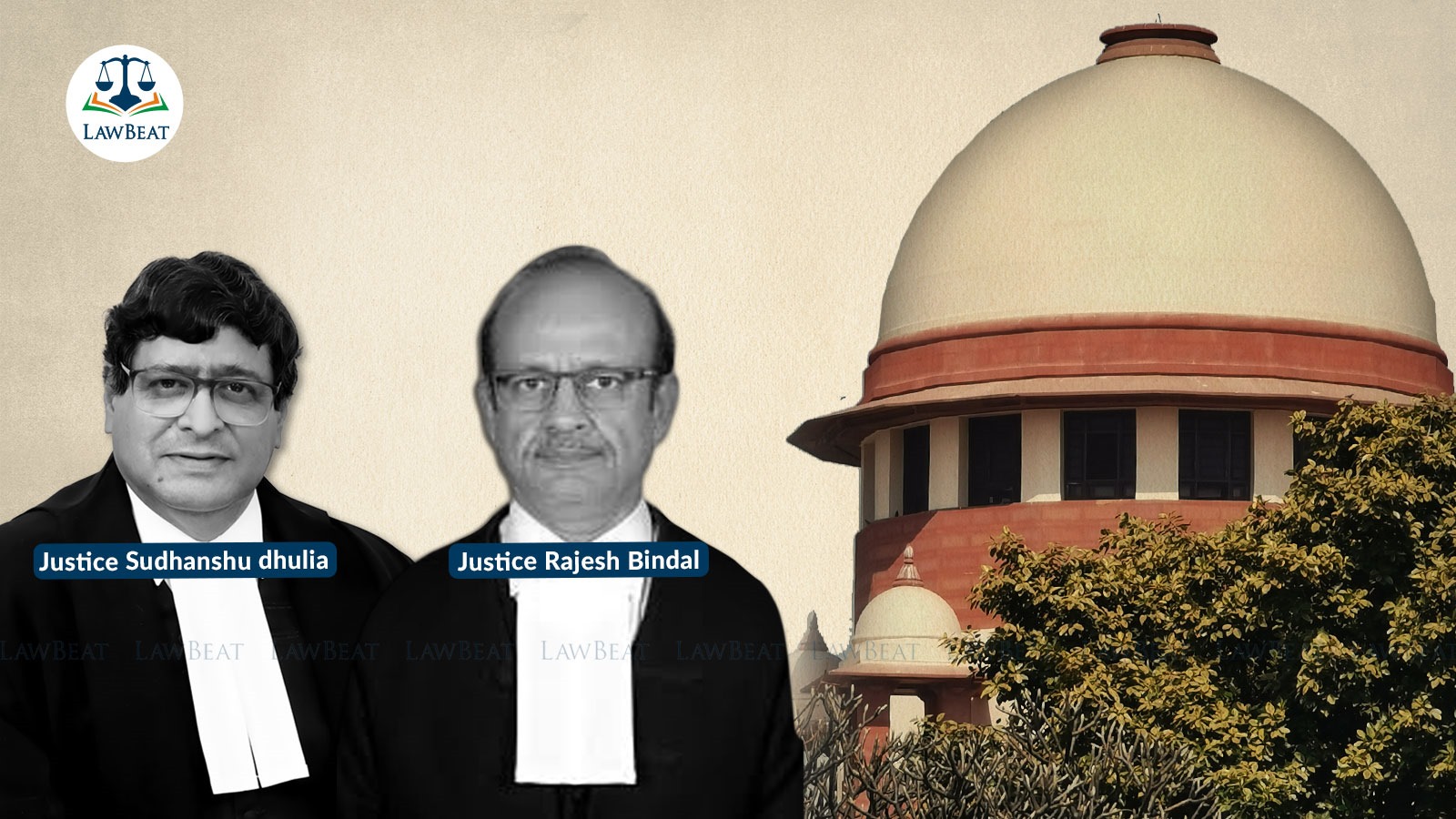Man killed inside police station: Supreme Court upholds conviction of constable

Top Court rejected bizarre and childish line of defence of the appellant while stressing the mandate of Section 231 of CrPC on deferment of trial proceedings
The Supreme Court has on July 3, 2024 upheld conviction and sentence of life term imposed upon a Delhi police constable for killing a man inside a police station in 2002, rejecting his contention that he acted in self defence and the incident took place due to grave and sudden provocation.
A bench of Justices Sudhanshu Dhulia and Rajesh Bindal also expressed a note of caution against long adjournment granted by the trial court for cross examination of witnesses, saying the practice may prejudice fair trial.
In the case, the court dismissed an appeal filed by Surinder Singh against the Delhi High Court's judgment which confirmed the trial court's order to hold him guilty under Sections 302 and 307 of the IPC.
The case of the prosecution was that the deceased was married to the appellant’s first cousin and was also his neighbour. On June 30, 2002, an FIR was lodged with the Mayur Vihar police station as the deceased was sprayed with bullets by the appellant through a carbine.
The prosecution alleged that the deceased had an illicit relationship with the wife of the appellant.
"In the present case on every possible count the case is nothing but a case of murder. The nature of weapon used; the number of gun shots fired at the deceased; the part of the body where gun shots are fired, all point towards the fact that the appellant was determined to kill the deceased. Ultimately, he achieved his task and made sure that the deceased is dead. By no stretch of logic is it a case of any lesser magnitude, and definitely not culpable homicide not amounting to murder," the bench said.
It further noted there were more than one witnesses to the fact that the deceased and the appellant were last seen together in conversation with each other inside the police station even minutes before these witnesses saw the appellant killing the deceased with his official 9 mm carbine.
The appellant contended on the fateful day, when he was on guard duty at the police station, it was the deceased who had come to the police station to kill the appellant and the appellant used his weapon only in self defence, but unfortunately the deceased was killed.
On this, the bench said, "All the same, this trumped up story did not find favour with the trial court and the appellate court and understandably so as the prosecution has an overwhelming evidence to the contrary, which only points towards a dastardly murder at the hands of the present appellant."
Top Court has also pointed out the plea of self-defence and in the alternative the plea of grave and sudden provocation taken by the appellant was based on the theory that it was the deceased who came to the police station in full speed in his car thereby first hitting the gate of the police station and then making an attempt to snatch the weapon from the appellant in order to kill him.
"In fact, the plea of self-defence taken by the accused/appellant is childish to say the least, in the light of the facts of the case, and on the weight of the evidence of the prosecution. The case of the defence that the deceased came to the Police Station “unarmed” to kill the appellant knowing very well that the appellant was armed with a weapon is an awkward attempt to present the deceased as the aggressor. It does not make any sense," the bench said.
Court also referred to eye-witness accounts, which proved that the appellant did not stop at the initial firing of the shot, which he had fired from a close range (the entry wound of gun shot with blackening).
In its judgment, the court also issued a note of caution against the practice by the trial court to give long adjournment on cross examination of witnesses.
"Such long adjournment as was given in this case after examination-in-chief, should never have been given. Reasons for this are many, but to our mind the main reason would be that this may affect the fairness of the trial and may even endanger, in a given case, the safety of the witness," the bench said.
It also pointed out the top court had, on more than one occasion, condemned this practice of the trial court where examinations are deferred without sufficient reasons. "As we have said cross examination can be deferred in exceptional cases and for reasons to be recorded by the Court, such as under sub-section 2 of Section 231 of CrPC but even here the adjournment is not to be given as a matter of right and ultimately it is the discretion of the Court. We only wanted to record this cautionary note to make our point that this practice is not a healthy practice and the courts should be slow in deferring these matters," it said.
